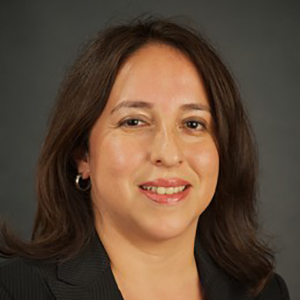Speaker Bios
Harold Pollack
Helen Ross Professor / Crown Family School of Social Work, Policy, and Practice, The University of Chicago

Harold Pollack is the Helen Ross Professor at the Crown Family School of Social Work, Policy, and Practice. He is also an Affiliate Professor in the Biological Sciences Collegiate Division and the Department of Public Health Sciences.
Co-founder of the University of Chicago Crime Lab, he is co-director of the University of Chicago Health Lab. He is a committee member of the Center for Health Administration Studies (CHAS) at the University of Chicago. His current NIH-funded research concerns improved services for individuals at the boundaries of the behavioral health and criminal justice systems, disabilities, and two major new efforts to address the opioid epidemic in Illinois and across the nation.
John Clapp
Executive Vice Dean and Professor / USC Suzanne Dworak-Peck School of Social Work

John D. Clapp is a professor at the Suzanne Dworak-Peck School of Social Work at the University of Southern California. Clapp is known internationally for his research and translational work in the field of alcohol problem prevention.
A fellow in the American Academy of Health Behavior, Clapp is currently studying the system dynamics of drinking events with a team of engineers and computer scientists with the goal of developing “smart” real-time prevention applications. He has published more than 100 journal articles, with his work appearing in the Journal of Studies on Alcohol and Drugs, Addiction, Drug and Alcohol Dependence, among numerous other top research journals.
Clapp has been awarded more than $32 million in grants and contracts (NIAAA, NIDA, U.S. Department of Education, Conrad N. Hilton Foundation) and has been principal investigator on over 20 funded projects. Clapp was the founding co-editor-in-chief of the International Journal of Alcohol and Drug Research.
As a leader in the prevention of alcohol-related problems experienced by college students, he served six years as the director of the Higher Education Center for Alcohol and Drug Misuse Prevention and Recovery. He also served on the Substance Abuse and Mental Health Services Administration’s Center for Substance Abuse Prevention National Advisory Council. Clapp’s work and expertise has been featured in numerous international media outlets, with coverage in The New York Times, The Washington Post, The Daily Telegraph, ABC National News, among numerous others.
Avelardo Valdez
Cleofas and Victor Ramirez Professor of Practice, Policy, Research and Advocacy for the Latino Population / USC Suzanne Dworak-Peck School of Social Work

Avelardo Valdez is currently a professor. He was previously a professor at the Graduate College of Social Work at the University of Houston and Director of the Center for Drug & Social Policy Research. He obtained his Ph.D. in Sociology at the University of California, Los Angeles. A primary focus of his research has been on the relationship between substance abuse and violence and health issues among high-risk groups. His research projects have been among “hidden populations” such as youth and prison gang members, heroin users, sex workers, aging drug users, and crack users. He is a nationally and internationally recognized scholar with an extensive publication record in his field of research. His most recent book is entitled Mexican American Girls and Gang Violence: Beyond Risk. He is a recipient of federal grants from the National Institutes of Health (NIH), National Institute on Drug Abuse (NIDA), Centers for Disease Control and Prevention (CDC), and Substance Abuse and Mental Health Services Administration (SAMHSA). Two of his NIH funded grants focus on examining the long-term consequences of adolescent gang membership among Mexican Americans. Dr. Valdez is also a recipient and director of the NIDA Interdisciplinary Research Training Institute on Hispanic Drug Abuse. Dr. Valdez received the Award for Excellence in Mentorship from the National Hispanic Science Network on Drug Abuse (NHSN). He is the recipient of numerous other awards including the Senior Scholar Award for the Society for the Study of Social Problems, National Award of Excellence Senior Research Scientist, National Hispanic Science Network, and Outstanding Senior Scholar for the American Sociological Association. He has served as a member of the Committee for National Academy of Sciences Study of High Rates of Incarceration in the United States (2013-2014) and recently served on Lieutenant Governor Gavin Newsom‘s Blue Ribbon Commission on Marijuana Law and Policy in California (2015) and recently was appointed to the Advisory Cannabis Working Group by the Los Angeles County Office of Cannabis Management.
Alice Cepeda
Associate Professor / USC Suzanne Dworak-Peck School of Social Work

Alice Cepeda is currently an associate professor. She was previously in the Department of Sociology and associate director of the Center for Drug and Social Policy Research at the University of Houston. She received her doctoral degree from the City University of New York, Graduate Center. Her work has focused on the social epidemiology of drug use and the related health risk behaviors that disproportionately affect urban Mexican-origin minority populations, including violence, HIV/STI infection risks and mental health conditions. Cepeda’s research has also highlighted the unique gendered experiences encountered by females within this cultural context. Her research publications have explored the complex of social determinants, including familial, neighborhood and socio-ecological factors that contribute to drug use and negative social and health outcomes among vulnerable minority populations. Cepeda has been a recipient of several federal National Institutes of Health grants. She is currently principal investigator and co-investigator, respectively, on two National Institute on Drug Abuse-funded studies: one examining the long-term health consequences of adolescent gang membership and one on the emergence and diffusion of crack use in Mexico City. Cepeda has also been a multiple recipient and scholar of the National Center on Minority Health and Health Disparities Loan Repayment Program. She received the 2010 National Award of Excellence in Research by a New Investigator from the National Hispanic Science Network on Drug Abuse based on her outstanding research and publication in the field of Hispanic drug abuse. She was also a recipient of the 2010 Junior Scholar Award presented by the Drinking and Drugs Division of the Society for the Study of Social Problems. Cepeda is currently chair of the Early Career Leadership Committee for the National Hispanic Science Network on Drug Abuse.
Eric Pedersen
Associate Professor of Psychiatry and the Behavioral Science / Keck School of Medicine

Eric R. Pedersen is an adjunct behavioral scientist at the RAND Corporation. His primary affiliation is with the Keck School of Medicine at the University of Southern California. His research interests are primarily in the areas of young adult/adolescent alcohol use and comorbid mental health disorders. Pedersen has received funding to develop brief, online interventions to reduce alcohol misuse among young adult populations such as college students and recently discharged veterans. He is interested in finding ways to target comorbid Posttraumatic Stress Disorder (PTSD) and substance use disorders among active duty and young adult veterans, as well as using internet-based methods to help reduce alcohol misuse and promote treatment engagement among non-treatment-seeking young adults. He is also serving as the director of Project ALERT, which is a school-based drug prevention program for middle school youth developed at RAND. He is currently examining how cannabis use among young adults has changed during the time of recreational legalization. He trained at the VA San Diego, where he focused on rotations in empirically supported interventions for PTSD and dual diagnoses (i.e., comorbid substance abuse and mental health disorders). Pedersen earned his Ph.D. in clinical psychology from the University of Washington.
Jordan Davis
Assistant Professor and Associate Director of the USC Center for Artificial Intelligence in Society / USC Suzanne Dworak-Peck School of Social Work

Jordan Davis is an assistant professor in the department of Children, Youth and Families. He has devoted much of his career to research addressing substance use and the developmental needs of marginalized and vulnerable populations. Davis also focuses on the utility and development of longitudinal data analyses in the structural equation modeling framework.
Davis’ primary research focuses on substance use disorder treatment among marginalized youth. His intervention work mainly concentrates on Mindfulness-Based Relapse Prevention and how it can be utilized to address issues facing at-risk youth. Davis has conducted the first randomized controlled trial assessing Mindfulness-Based Relapse Prevention and the effect on stress, craving and substance use among at-risk young adults in residential treatment.
Davis’ research spans to understanding both psychological and physiological stress responses and self-regulation, and how changes in these systems can alter treatment and developmental outcomes. Recently, Davis has focused on understanding how the development of early life risk and protective factors are associated with sexual violence victimization and perpetration, as well as teen dating violence.
Davis has been funded by the National Institute on Drug Abuse, the Fahs Beck Fund for Experimentation, and the Centers for Disease Control and Prevention. He has been named a Fahs-Beck scholar, a Society for Social Work Research Doctoral fellow, and has received numerous awards for his doctoral work on marginalized young adults.
Jungeun Olivia Lee
Assistant Professor / USC Suzanne Dworak-Peck School of Social Work

Jungeun Olivia Lee joined the USC Suzanne Dworak-Peck School of Social Work in 2014. Prior to her appointment at USC, she was a research scientist at the University of Washington’s School of Social Work and Social Development Research Group after receiving her doctoral degree in 2009. Dr. Lee seeks to disentangle a complex relationship among socioeconomic status, adverse childhood experiences (ACEs), and behavior health, particularly substance use and its comorbid mental health, during the life course and across generations. Conceptually anchored in the life course perspective, Dr. Lee’s research focuses on (a) the impacts of socioeconomic status, both at individual- and neighborhood levels, on problematic substance use and their underlying mechanisms; (b) associated gender differences; and (c) the intergenerational impacts of parental substance use, socioeconomic status, and ACEs on children. She has contributed to multiple grants as an investigator. She is currently principal investigator for a grant funded by the National Institute of Child Health and Human Development. The study seeks to identify developmental timing and dynamic changes in maternal substance use and socioeconomic status among low-income young mothers, link them to child developmental outcomes, and then link those back to maternal exposure to ACEs. She is also the lead investigator at the USC site of a multi-campus consortium that seeks to understand ACEs, intimate partner violence, and substance use. She is a member of the Society for Social Work and Research and the Society for Prevention Research. Lee is interested in quantitative methodology for longitudinal data and has expertise in four general areas of advanced statistics, including mixture modeling (often referred to as the “person-centered approach”), structural equation modeling, categorical data analysis and techniques for handling missing data.